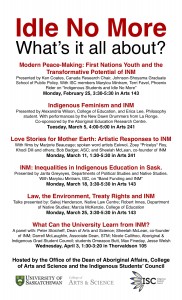
AP/ Civil rights leader Martin Luther King, Jr., waves to supporters from the steps of the Lincoln Memorial 28 August, 1963, on The Mall in Washington, DC, upon giving the ‘I Have a Dream’ speech.
The King Center, July 16, 2013– The King Center and the 50th Anniversary Coalition are calling on people and organizations across America to help culminate the 50th anniversary of The March on Washington and Dr. Martin Luther King, Jr.’s “I Have a Dream” speech with “Let Freedom Ring” bell-ringing events at 3:00 p.m. Eastern Standard Time on August 28th, a half-century to the minute after Dr. King delivered his historic address. In other nations, there will be bell-ringing ceremonies at 3:00 p.m. in their respective time zones.
“We are calling on people across America and throughout the world to join with us as we pause to mark the 50th anniversary of my father’s ‘I Have a Dream’ speech with ‘Let Freedom Ring’ bell-ringing events and programs that affirm the unity of people of all races, religions and nations,” said King Center C.E.O. Bernice A. King. “My father concluded his great speech with a call to ‘Let freedom ring,’ and that is a challenge we will meet with a magnificent display of brotherhood and sisterhood in symbolic bell-ringing at places of worship, schools and other venues where bells are available from coast to coast and continent to continent.”
Local groups are encouraged to present diverse commemorative programs, which bring people together across cultural and political lines to celebrate the common humanity in creative and uplifting ways in the spirit of the dream. Ms. King especially urges that all of the programs involve children and young people, since children are mentioned in several passages of her father’s “I Have a Dream” speech.
There will be a “Let Freedom Ring” Commemoration & Call to Action” on the National Mall in Washington, D.C. on August 28th. The program begins with an interfaith service from 9:00 a.m. to 10:30 a.m. at the Martin Luther King, Jr. Memorial on the Tidal Basin, followed by the “Let Freedom Ring” Commemoration and Call to Action at the nearby Lincoln Memorial from 1:00 p.m. to 5:30 p.m. that includes the bell-ringing ceremony at 3:00 p.m.
Groups are already planning bell-ringing events in places as diverse as Concord, New Hampshire, Allentown PA, Lutry Switzerland and Tokyo Japan. Governors of the 50 states have been asked to support the bell-ringing, and many have already responded enthusiastically, with more expected to join the effort. The King Center requests that all groups planning programs submit a brief description of your 50th anniversary ‘Let Freedom Ring’ bell-ringing event to website@thekingcenter.org.
“Let Freedom Ring” will conclude seven-days of events commemorating the March on Washington and Dr. King’s Dream speech. For the millions who can’t come to Washington, D.C. for the seven-day program, the local ‘Let Freedom Ring’ programs will provide a unique opportunity to get involved in a poignant nation-wide and global day of unity in their respective home towns.
“Our World, His Dream: Freedom – Make it Happen” is the theme for the “Let Freedom Ring” commemoration and call to action. This theme is undergirded by the three sub-themes: “Freedom to Prosper in Life;” “Freedom to Peacefully Co-Exist;” and “Freedom to Participate in Government.”
For more information about the 50th Anniversary of the I Have A Dream speech, please contact The King Center (Atlanta, GA) at 404-526-8944, sklein@thekingcenter.org or visit the websitewww.mlkdream50.com. To stay in touch with updated details, participate with the following: Twitter twitter.com/DCMARCHMLK50; Facebook www.facebook.com/Mlkdream50; Pinterest pinterest.com/mlkdream50/; and Intstagram mlkdream50. The Hashtag is #mlkdream50.

 Follow
Follow

